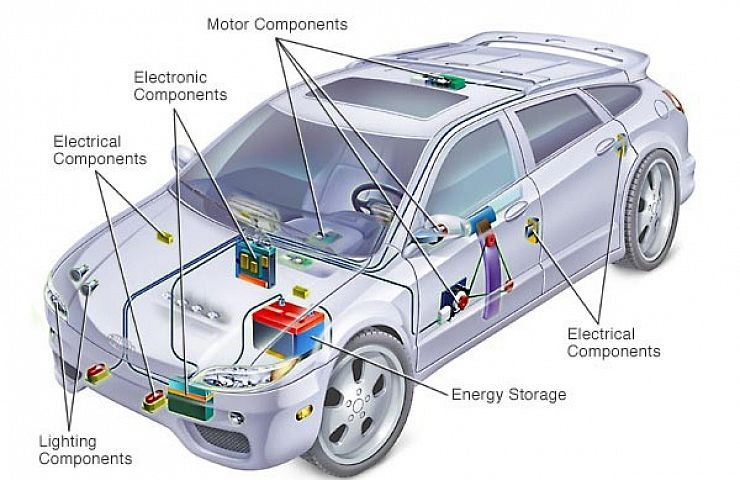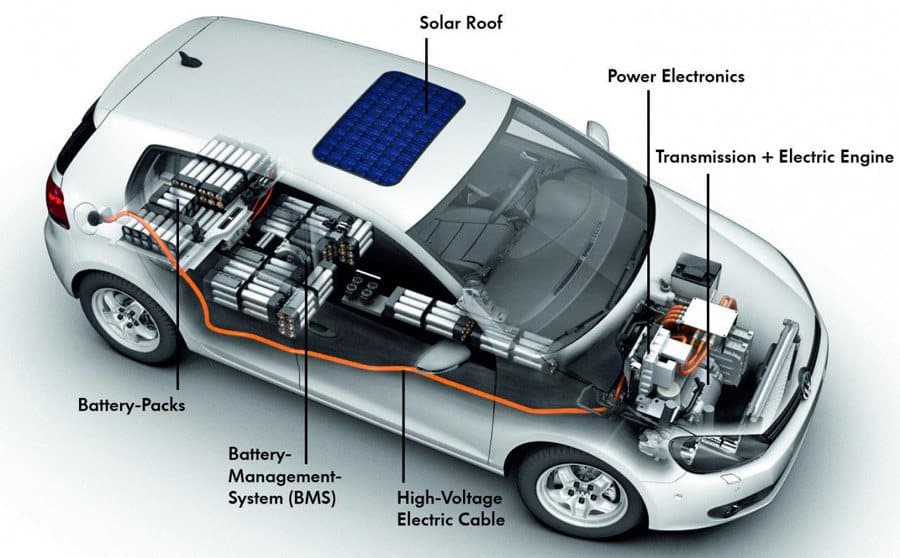The automotive world has witnessed tremendous advancements in recent years, with cutting-edge technologies transforming the driving experience. One integral aspect that often goes unnoticed by the average driver is the intricate web of wires and components that make up the electrical system in a car. In this article, we will delve into the fascinating realm of the “Electrical System In A Car” and uncover the crucial role it plays in modern vehicles.
Understanding the Basics of Electrical System In A Car
The electrical system in a car is a complex network that powers various components, ranging from the lights and radio to critical systems like the engine control unit (ECU). At its core, this system consists of a battery, alternator, starter, and an extensive network of wires that distribute electrical power throughout the vehicle. Understanding how these components work together is essential for both drivers and enthusiasts alike.
The Heart of the Matter: Electrical System Components
Battery: Serving as the powerhouse, the battery provides the initial burst of energy needed to start the engine. It also stabilizes voltage to keep the electrical system running smoothly.
Alternator: Once the engine is running, the alternator takes over, generating electricity to recharge the battery and power the electrical components.
Starter: The starter is responsible for initiating the engine’s rotation, allowing it to come to life. A malfunctioning starter can lead to frustrating ignition issues.
Wiring and Circuits: The extensive network of wires and circuits connects all electrical components, ensuring a seamless flow of power. Any disruption in this network can result in electrical failures.
Exploring the Functions of Electrical Components
Ignition System: This crucial component ensures the engine starts and runs smoothly. Faulty ignition systems can lead to engine misfires and decreased fuel efficiency.
Lights and Indicators: From headlights to brake lights, the electrical system powers various lighting components, enhancing visibility and safety.
Entertainment System: The radio, GPS, and other entertainment features rely on the electrical system for power, adding comfort and convenience to the driving experience.
Climate Control: Modern cars often feature sophisticated climate control systems, which, too, are an integral part of the electrical network.
Unveiling the Complexity of Electrical System In A Car
Electrical System In A Car: The Nerve Center of Automotive Innovation
The “Electrical System In A Car” serves as the nerve center, orchestrating a symphony of functions that contribute to the overall performance and comfort of the vehicle. This intricate network ensures that every component functions seamlessly, creating a harmonious driving experience.
Challenges and Maintenance of Electrical Systems
Despite their critical role, electrical systems in cars are not immune to challenges. Issues such as corroded wires, faulty alternators, or drained batteries can disrupt the entire system. Regular maintenance, including battery checks and inspections of wiring, is essential to prevent unexpected breakdowns.
Read too: The Longest Range Affordable Electric Car in 2023: Exploring the Pinnacle of Efficiency
Conclusion: Powering the Future of Mobility
In conclusion, the “Electrical System In A Car” is a technological marvel that propels the automotive industry forward. As vehicles continue to evolve, so too will the sophistication of their electrical systems. Understanding the intricacies of this system not only enhances driving knowledge but also empowers car owners to address issues proactively. Next time you start your car, take a moment to appreciate the silent symphony of electrical components working in unison to power your journey.


